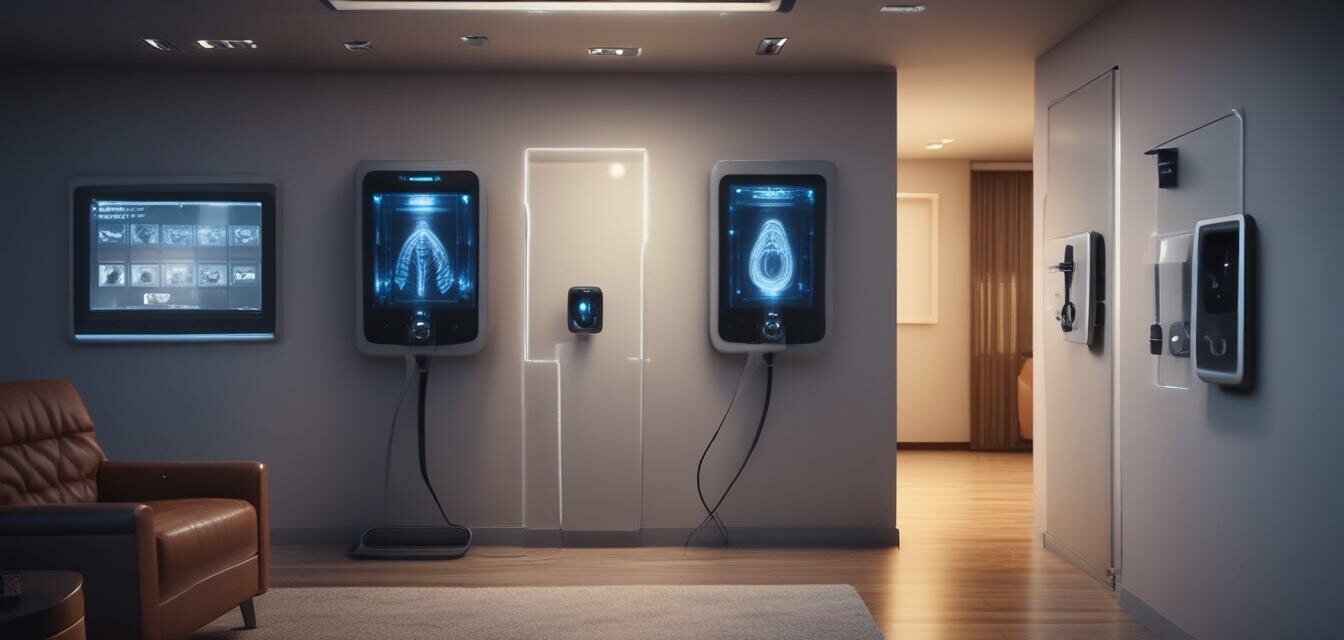
The Future of Biometrics in Home Security
- Biometrics enhance home security through unique identification methods.
- Integration of biometric technology is on the rise among home security systems.
- Common biometric systems include fingerprint, facial, and voice recognition.
- Biometric systems offer convenience and efficiency for homeowners.
- Understanding current trends can help you make informed decisions about enhancing your security.
As technology evolves, so do the methods we use to secure our homes. A growing trend in home security is the integration of biometric technology, offering a new level of safety and convenience for homeowners. This article explores how biometrics are reshaping the home security landscape and what it means for your future protection.
What is biometrics?
Biometrics refers to the measurement and statistical analysis of people's unique physical and behavioral characteristics. In the realm of security, biometric systems use these characteristics to verify identity, providing a more secure and efficient way to protect your home compared to traditional methods like keys and passwords.
Types of biometric technologies
Here are some common types of biometric technologies used in home security systems:
| Biometric Technology | Description | Advantages |
|---|---|---|
| Fingerprint Recognition | Scans and identifies fingerprints to grant access. | Convenient, fast, and generally accurate. |
| Facial Recognition | Analyzes a person's facial features to verify identity. | Non-intrusive and can monitor multiple faces simultaneously. |
| Retina Scanning | Uses the unique pattern of blood vessels in the retina. | Highly secure but may require specialized equipment. |
| Voice Recognition | Analyzes voice patterns to authenticate users. | Hands-free operation and easy to use. |
Why choose biometric systems for home security?
There are several compelling reasons to consider biometric systems for your home security needs:
- Enhanced security: Biometrics are unique to each individual, making it significantly harder for intruders to bypass security.
- Convenience: No more fumbling for keys or forgetting passwords; biometric systems provide immediate access.
- Record keeping: Many biometric systems log entry and exit times, allowing homeowners to monitor who enters their home.
- Integration with smart home systems: Biometric locks can seamlessly integrate with other home automation systems, providing advanced control over your security.
The integration of biometrics in home security systems
The integration of biometric technology in home security has been gaining traction. Here are some trends in the industry:
- Increased accessibility: Biometric devices are becoming more affordable and readily available, making them accessible to more homeowners.
- Smart home compatibility: As smart home technology continues to advance, so does the integration of biometrics into these systems.
- Mobile applications: Homeowners can now manage their security systems remotely, providing added peace of mind.
Future outlook for biometric technology in security
As the demand for effective home security solutions grows, the future of biometric technology looks promising. Here are some anticipated developments:
- Improved accuracy: Advancements in biometric algorithms and AI will improve recognition accuracy and speed.
- Enhanced user experience: Future devices will focus on user-friendliness and seamless integration with existing security systems.
- Broader application: Biometric technology may expand beyond just locks to include monitoring and surveillance systems.
Key considerations when choosing biometric security systems
Before investing in a biometric security system, consider the following:
- Choose a system that fits your security needs and lifestyle.
- Ensure the system is compatible with existing security measures in your home.
- Look for reputable manufacturers with good customer reviews.
- Evaluate long-term costs, including maintenance and potential upgrades.
Conclusion
As homeowners seek to enhance their security measures, biometric technology offers a promising solution that combines convenience, effectiveness, and advanced protection. Understanding the trends and innovations in this field will empower you to make informed decisions about how to best secure your home. With the continuous evolution of biometric technology, staying updated on the latest developments is essential.
Pros
- High level of security through unique identification.
- Convenience and ease of use.
- Ability to integrate with other smart home technologies.
- Can log access for monitoring purposes.
Cons
- Potential for false readings or failures in certain conditions.
- Privacy concerns with data storage and security.
- Initial cost may be higher than traditional locks.
To further enhance your home security, check out our guides on home security buying guides, and stay updated with latest technology trends in the security industry. For tips on improving your home safety, explore our home safety tips.
